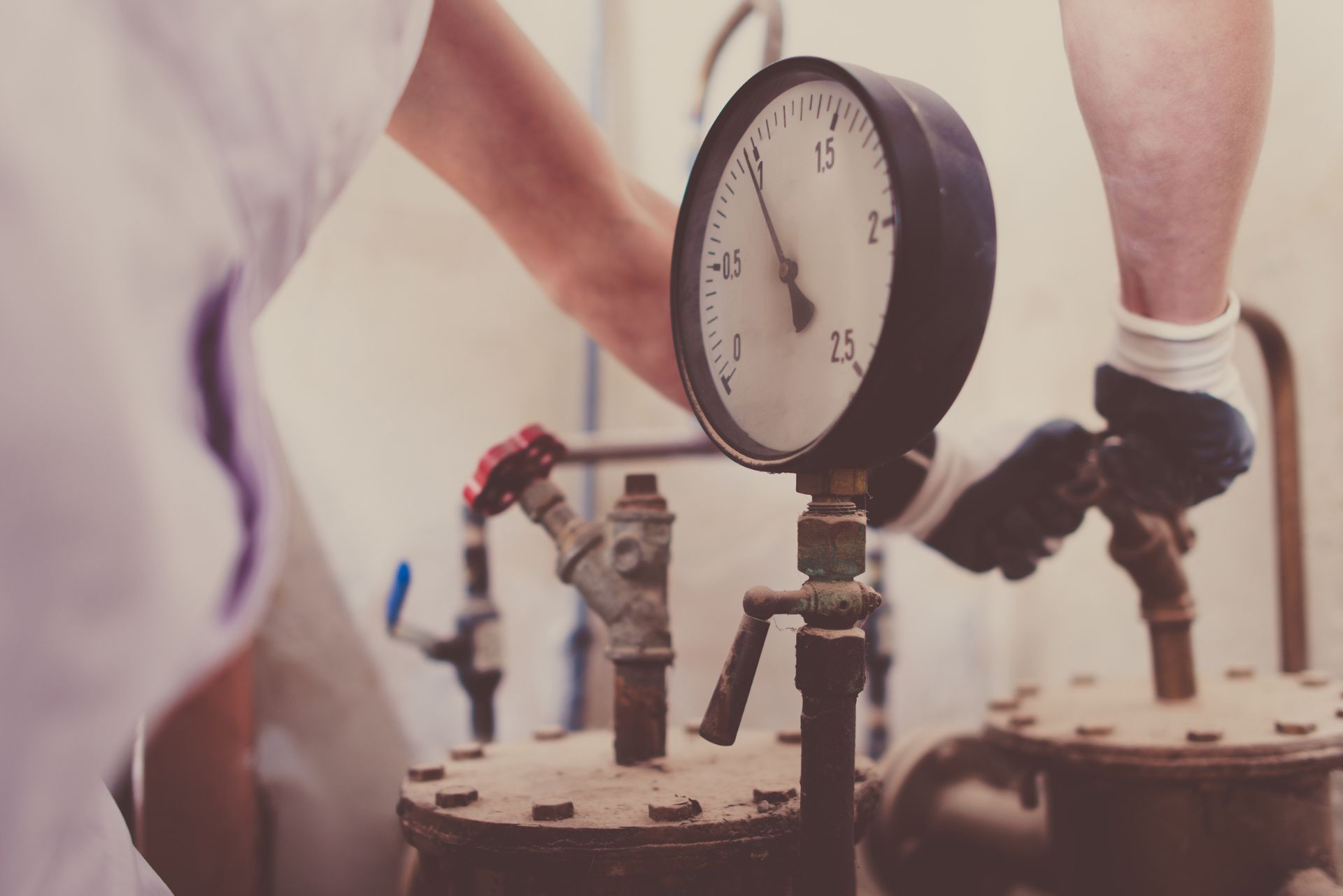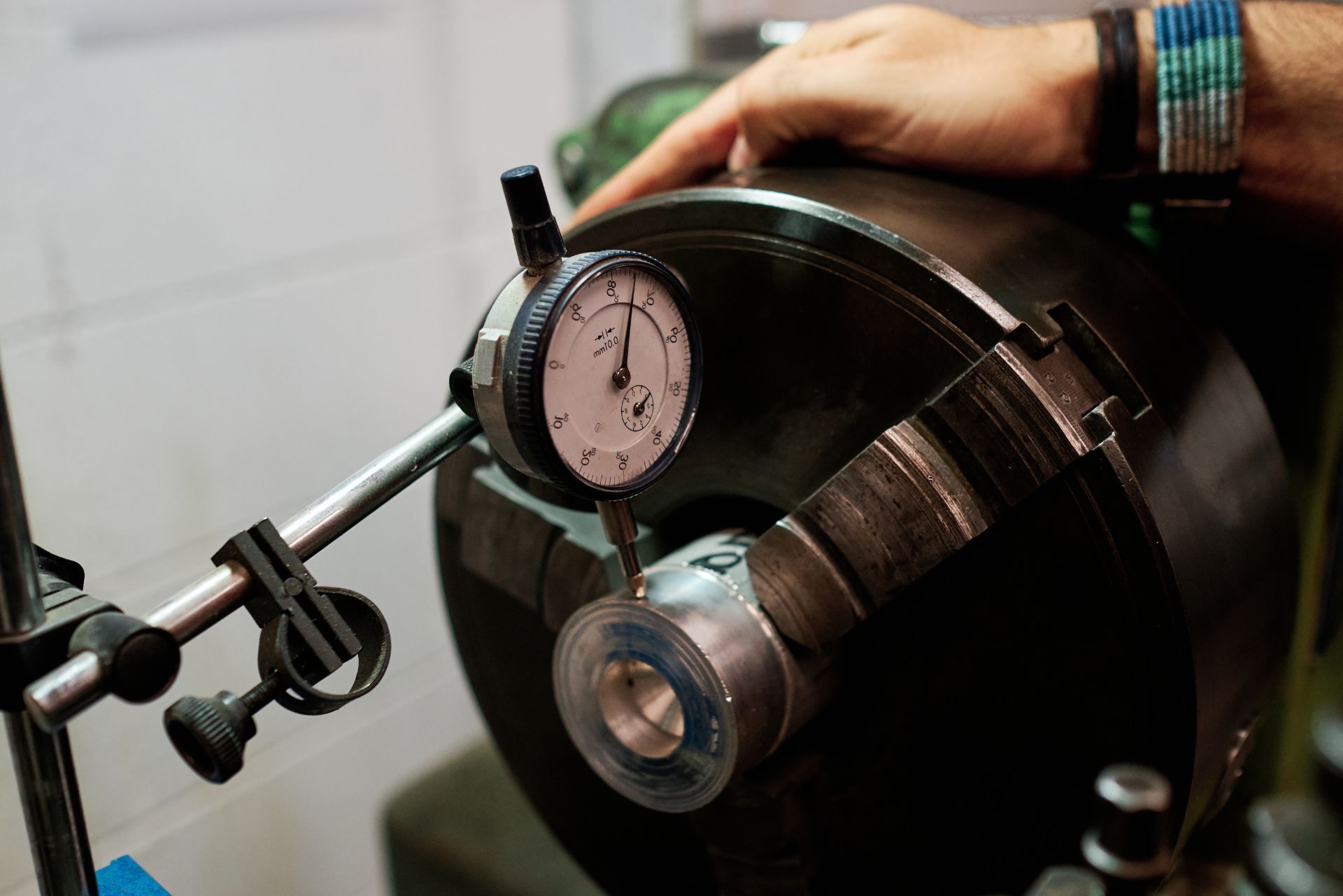Top 3 Recommended Policies

Operating a pressure testing service involves specialized equipment, skilled technicians, and a host of potential risks. From equipment malfunction to environmental hazards, the nature of this business demands comprehensive insurance coverage to protect against financial losses and liabilities. Understanding the nuances of pressure testing service market growth and the evolving insurance landscape is essential for business owners who want to safeguard their operations effectively.
In this article, we will explore the key aspects of business insurance tailored for pressure testing services, highlighting market trends, common risks, and the types of coverage that can provide peace of mind in a challenging industry.
The Growing Pressure Testing Service Industry and Its Insurance Needs
The pressure testing service market was valued at $1.01 billion in 2024 and is projected to reach $1.41 billion by 2030, growing at a compound annual growth rate (CAGR) of 5.61%. This steady expansion reflects increasing demand across industries such as oil and gas, construction, and manufacturing, where pressure testing ensures the safety and integrity of pipelines, tanks, and other critical infrastructure. The rise in infrastructure projects globally, particularly in developing nations, has further fueled this demand, as companies strive to meet stringent safety regulations and operational standards. As industries evolve, the integration of advanced technologies, such as automated testing systems and real-time monitoring, is also becoming commonplace, enhancing the efficiency and accuracy of pressure testing services.
With this growth comes a heightened need for specialized insurance products. Pressure testing businesses face unique exposures including equipment damage, third-party injury, environmental contamination, and contractual liabilities. As the market expands, so does the complexity of risks, making tailored insurance solutions indispensable for sustainable operations. Additionally, the increasing regulatory scrutiny surrounding environmental impacts necessitates that companies not only comply with safety standards but also protect themselves against potential legal repercussions. This has led to a surge in demand for comprehensive insurance policies that cover both operational risks and environmental liabilities, ensuring that businesses can navigate the complexities of compliance while maintaining their competitive edge.
Business owners should consider policies that cover property damage, general liability, professional liability, and environmental risks. Given the technical nature of pressure testing, professional liability insurance is particularly important to protect against claims of negligence or errors in testing procedures. Furthermore, as the industry continues to innovate, companies may also want to explore cyber liability insurance to protect against data breaches and cyber-attacks, especially as more pressure testing operations incorporate digital technologies and data management systems. The evolving landscape of the pressure testing service industry underscores the importance of proactive risk management strategies, enabling businesses to not only safeguard their assets but also enhance their reputation in a competitive marketplace.

Key Insurance Coverages for Pressure Testing Businesses
General Liability Insurance
General liability insurance is foundational for any pressure testing business. It covers claims related to bodily injury, property damage, and personal injury caused by your operations. For example, if a technician accidentally damages a client’s property during testing, this coverage helps manage the financial fallout.
Since pressure testing often involves working on-site with heavy machinery, the risk of accidents is significant. General liability insurance not only protects your business assets but also helps maintain client trust by demonstrating a commitment to responsible risk management. Furthermore, it can cover legal fees, which can quickly accumulate in the event of a lawsuit, ensuring that your business can withstand the financial strain while you focus on your core operations.
Additionally, many clients may require proof of general liability insurance before entering into contracts, making it an essential component for securing new business opportunities. By having this coverage in place, you not only protect your company but also enhance your credibility in a competitive market.
Professional Liability Insurance
Also known as errors and omissions insurance, professional liability coverage protects against claims arising from mistakes or negligence during the testing process. This is critical in pressure testing, where inaccurate results can lead to catastrophic failures or safety hazards.
Industry experts warn about the increasing severity of claims in professional liability insurance due to "social inflation," a trend where claim costs rise beyond traditional actuarial expectations. This makes having robust professional liability coverage more important than ever for pressure testing firms to shield themselves from costly litigation and settlements. For more insights, see the AI Structural Review on professional liability trends.
Moreover, as technology advances and testing methodologies evolve, the complexity of pressure testing increases, which can lead to a higher likelihood of errors. Professional liability insurance not only provides financial protection but also offers peace of mind, allowing businesses to innovate and improve their services without the constant fear of litigation hanging over their heads.
Environmental Liability Insurance
Pressure testing can involve handling hazardous materials or working in sensitive environments. Environmental liability insurance covers claims related to pollution, contamination, or environmental damage caused during operations. This coverage is vital to mitigate risks associated with spills, leaks, or improper disposal of testing fluids.
Given the increasing regulatory scrutiny and potential for significant cleanup costs, environmental liability insurance helps businesses avoid crippling financial losses and reputational damage. Additionally, as public awareness of environmental issues grows, having this coverage can enhance your company's image as a responsible and eco-conscious operator, attracting clients who prioritize sustainability.
Furthermore, some contracts may specifically require environmental liability coverage, especially in industries such as oil and gas or construction, where the potential for environmental impact is significant. By securing this insurance, you not only comply with legal requirements but also position your business as a leader in environmental stewardship within the pressure testing sector.
Equipment and Property Insurance
Pressure testing relies on specialized and often expensive equipment. Equipment insurance protects against loss or damage due to theft, accidents, or natural disasters. Similarly, property insurance covers your business premises and physical assets.
Considering the investment in pressure testers and associated tools, adequate coverage ensures that unexpected events do not disrupt operations or lead to substantial out-of-pocket expenses. In addition to protecting tangible assets, equipment insurance can also cover the costs of renting replacement equipment while yours is being repaired or replaced, minimizing downtime and maintaining productivity.
Moreover, as technology continues to evolve, pressure testing equipment becomes more sophisticated and costly. Regularly reviewing and updating your equipment and property insurance policies is crucial to ensure that you have sufficient coverage that reflects the current value of your assets. This proactive approach can save your business from significant financial strain in the event of an unforeseen incident, allowing you to focus on delivering quality services to your clients.
Market Trends Impacting Business Insurance for Pressure Testing Services
The broader business insurance market is experiencing dynamic changes that also affect pressure testing service providers. The global business insurance market is expected to reach $8.4 trillion by 2027, growing at 4.3% annually. This growth reflects increased demand for risk management solutions across sectors, including specialized services like pressure testing.
One notable trend is the rise in underwriting losses due to natural disasters, which totaled $34 billion in the first half of 2023 alone. Such losses influence insurer pricing and coverage availability, particularly for businesses operating in disaster-prone areas or handling hazardous materials. As climate change continues to exacerbate the frequency and severity of these events, insurers are becoming increasingly cautious, leading to stricter underwriting guidelines and higher premiums for high-risk industries.
Additionally, the ongoing advancements in technology are reshaping the landscape of pressure testing services, which in turn affects insurance needs. The integration of automated systems and real-time monitoring in pressure testing not only enhances safety and efficiency but also introduces new risks that insurers must consider. As companies adopt these innovations, they may find that their insurance policies need to be updated to cover emerging liabilities associated with technology failures or cybersecurity threats.
Pressure testing companies need to stay informed about these market shifts to negotiate better insurance terms and anticipate premium changes. For a detailed look at insurance industry statistics, visit Fit Small Business insurance statistics.
Why Customer Satisfaction Remains High Despite Rising Premiums
Interestingly, small business insurance customer satisfaction continues to climb even as premiums increase. According to Stephen Crewdson, Senior Director of Global Insurance Intelligence at J.D. Power, this trend contrasts with personal lines insurance, where rising rates often dampen satisfaction.
This phenomenon can be attributed to insurers improving service quality, claims handling, and policy customization for small businesses, including those in specialized fields like pressure testing. Business owners value insurers who understand their unique risks and offer tailored solutions, which enhances trust and loyalty despite cost pressures.
Understanding this dynamic helps pressure testing businesses approach insurance as a strategic partnership rather than just a cost center. More details on this trend can be found in the J.D. Power study on small business insurance satisfaction.
Moreover, the evolving landscape of small business insurance has prompted insurers to invest heavily in technology and customer service enhancements. Many companies are now leveraging artificial intelligence and data analytics to better understand customer needs, streamline the claims process, and provide proactive risk management advice. This technological advancement not only improves efficiency but also fosters a more personalized experience for business owners, making them feel valued and understood.
Additionally, the rise of online platforms and digital communication has transformed how small businesses interact with their insurers. With the ability to access information, file claims, and receive support through user-friendly apps and websites, business owners enjoy greater convenience and transparency. This shift towards digital engagement has proven particularly beneficial during challenging times, as it allows for quick responses and resolutions, further solidifying customer satisfaction even in the face of rising premiums.

Cyber Insurance: An Emerging Concern for Pressure Testing Services
While traditionally not the first risk that comes to mind for pressure testing companies, cyber insurance is becoming increasingly relevant. In 2023, U.S. companies accounted for 59% of global cyber insurance premiums, writing $9.84 billion out of $16.6 billion worldwide.
Pressure testing businesses often rely on digital systems for data logging, reporting, and client communication. Cyberattacks targeting these systems can lead to data breaches, operational disruptions, and reputational harm. Cyber insurance helps cover costs related to data recovery, legal fees, and customer notification in the event of a breach.
Given the rising frequency and sophistication of cyber threats, integrating cyber insurance into the overall risk management strategy is prudent for pressure testing firms aiming to protect their digital assets. Additionally, as these companies increasingly adopt advanced technologies such as IoT devices and cloud-based solutions, the attack surface expands, making them more vulnerable to cyber incidents. The interconnected nature of these systems means that a single breach can have cascading effects, impacting not just the company itself but also its clients and partners.
Moreover, regulatory requirements are evolving, with many jurisdictions mandating that companies implement robust cybersecurity measures and maintain appropriate insurance coverage. This regulatory landscape adds another layer of complexity for pressure testing services, as non-compliance can lead to significant fines and further reputational damage. By investing in cyber insurance, these firms can not only safeguard their operations but also demonstrate to clients and stakeholders that they take cybersecurity seriously, fostering trust and potentially giving them a competitive edge in an increasingly security-conscious market.
Choosing the Right Insurance Partner for Your Pressure Testing Business
Selecting an insurance provider with expertise in industrial and technical services is crucial. A knowledgeable insurer can offer customized policies that address the specific risks pressure testing companies face, from equipment breakdown to professional errors.
Business owners should seek insurers who provide clear communication, efficient claims processing, and proactive risk management advice. This partnership approach not only ensures adequate coverage but also supports long-term business resilience.
Moreover, staying informed about market developments and emerging risks enables pressure testing businesses to adapt their insurance portfolios as their operations evolve.
In addition to these considerations, it is essential to evaluate the financial stability of potential insurance partners. A provider's financial strength can significantly impact their ability to pay claims, especially during times of widespread industry disruption. Look for insurers with strong ratings from independent agencies, as these ratings can provide insight into their reliability and capacity to handle large claims. Furthermore, consider the insurer's experience in the pressure testing sector; those with a proven track record are more likely to understand the nuances of your operations and the specific challenges you face.
Another important factor is the range of additional services offered by the insurer. Many modern insurance providers go beyond traditional coverage, offering value-added services such as safety training, risk assessments, and access to industry-specific resources. These services can help mitigate risks before they result in claims, ultimately leading to lower premiums and a safer working environment. Engaging with an insurer that prioritizes education and support can empower your business to implement best practices, enhancing both operational efficiency and safety standards.
Conclusion
The pressure testing service industry is on a growth trajectory, driven by demand across multiple sectors. However, this growth comes with complex risks that necessitate comprehensive and specialized insurance coverage. From general liability and professional liability to environmental and cyber insurance, pressure testing businesses must adopt a holistic approach to risk management.
Market trends, including rising underwriting losses from natural disasters and evolving customer satisfaction dynamics, underscore the importance of partnering with the right insurer. By understanding the insurance landscape and securing appropriate coverage, pressure testing companies can protect their assets, reputation, and future growth.
For businesses operating in this specialized field, investing time and resources into robust insurance solutions is not just prudent—it’s essential for long-term success.
Contact Us
Phone
Location
9595 Six Pines Dr, Suite 8210, The Woodlands, TX 77380

